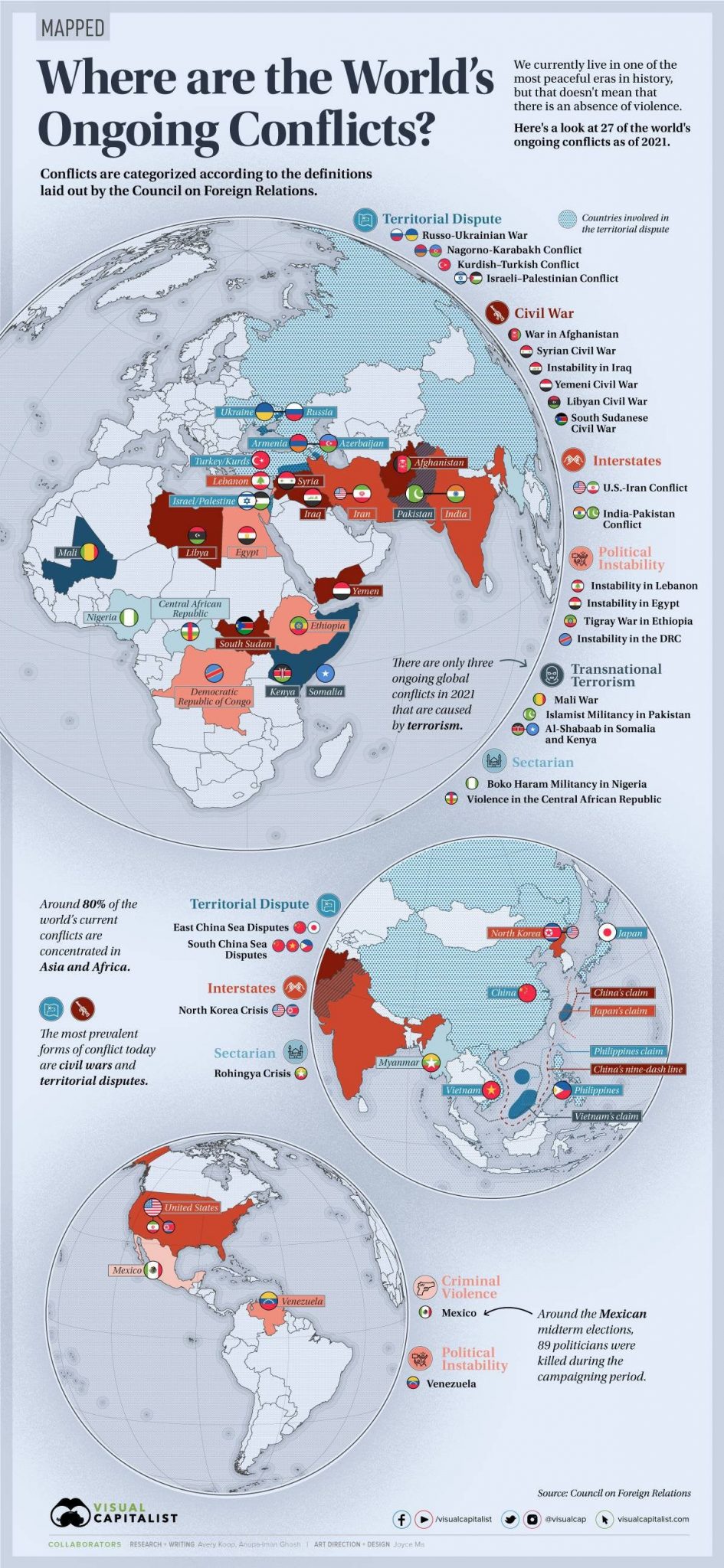
The World at War: Armed Conflict Reaches Post-World War II High
The year 2023 witnessed a surge in armed conflicts around the world, marking the highest number since the end of World War II. According to the Stockholm International Peace Research Institute (SIPRI), there were 59 major armed conflicts taking place in 2023, surpassing the previous high of 56 recorded in 1991. The proliferation of conflicts has been attributed to a combination of factors, including unresolved political tensions, ethnic or religious divides, economic inequality, and the proliferation of small arms and light weapons.
Major Conflict Zones
Some of the most significant conflict zones in 2023 included: * Russia-Ukraine War: The invasion of Ukraine by Russia in February 2022 escalated into a protracted and devastating conflict. * Syrian Civil War: The ongoing civil war entered its 12th year, with rebel groups and the Syrian government forces continuing to engage in heavy fighting. * Yemen Civil War: The complex conflict in Yemen intensified in 2023, with multiple factions vying for control. * Ethiopia Tigray Conflict: Government forces clashed with rebels in the Tigray region, resulting in widespread displacement and human rights violations. * Afghanistan War: The Taliban regime faced resistance from armed opposition groups following the withdrawal of US and NATO forces in 2021.
Consequences of Conflict
The proliferation of armed conflicts has had devastating consequences for civilians worldwide. Human rights violations, including torture, arbitrary detention, and sexual violence, have been rampant. The conflicts have also displaced millions of people, created food insecurity, and disrupted access to essential services like healthcare and education.
Global Impact
The surge in armed conflicts poses a serious threat to international peace and security. It undermines diplomatic efforts, destabilizes regions, and strains global resources. The humanitarian crisis caused by the conflicts also places a burden on aid organizations and governments around the world.
Urgent Actions Needed
To address the escalating number of armed conflicts, the international community must prioritize diplomatic solutions and support ceasefire agreements. Investment in conflict prevention, peacebuilding, and post-conflict reconstruction is crucial. Governments must also work to reduce the proliferation of weapons and address the underlying factors that contribute to conflict. The world at war in 2023 is a sobering reminder of the fragility of peace and the urgent need for concerted action to prevent further human suffering and promote stability.